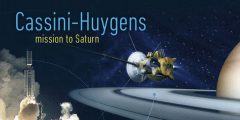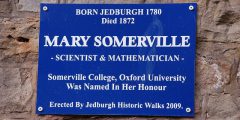Collision, collaboration and communication
October 25, 2017
The other day I read an article on why academics are losing relevance in society. I noticed that it contained a picture of a celebratory cake with the inscription “Here’s to the first direct detection of gravitational waves” (after two black holes collided). This event happened in 2016 and was widely celebrated around the world, …
Science/climate communication: A view from reception theory
September 28, 2017
There has been some controversy recently surrounding a paper published in Nature Geoscience on global warming or, if I understand things correctly, about whether there might be a slightly better chance of avoiding it. This paper appears to have been misunderstood, misrepresented and misreported. One Mail Online headline read: “Fear of global warming is exaggerated, …
Making lasers public: The European X-ray Free Electron Laser
September 8, 2017
Last weekend, my mum phoned me from Germany to tell me about the new x-ray laser inaugurated in Hamburg (as I later learned this is the European X-ray Free Electron Laser or XFEL) and asked me whether I had heard about it and whether I could explain what it did. I hadn’t and I couldn’t. …
Making science popular: Science communication in 19th-century France
August 20, 2017
Some weeks ago I saw a tweet in my timeline which contained an engraving of an iguanodon skeleton. The skeleton had been exhibited in Brussels and its picture appeared in the 1883* issue of the French popular science magazine La Science Illustrée. This made me think of an old blog post of mine entitled “Making Science Picturesque”, where …
Cassini: Space probes, history and women
April 29, 2017
I have just read a lovely article by Rebekah Higgitt on the various Cassinis that worked in France as astronomers. One of them was Giovanni Domenico (or Jean Dominique) Cassini (8 June 1625 – 14 September 1712), the first director of the observatory founded by Louis XIV, and discoverer, amongst other things, of four satellites of the planet …
Time and science communication
April 7, 2017
On 29 March, 2017 the UK House of Commons Science and Technology Committee published the results of its inquiry into science communication. On 31 March Tim Caulfied tweeted about an article that Andy Miah had written about the report for The Conversation. Tim said: “How scientists should communicate their work in a post-truth era … …
Digging for the roots of the deficit model
February 25, 2017
According to my twitter feed, the deficit model (also known as the knowledge or information deficit model of science communication or of public understanding of science) has been discussed yet again, this time during the 2017 meeting of the American Association for the Advancement of Science, in the midst of current soul searching about facts, …
Science communication: Mary Somerville
December 30, 2016
Every so often, and yet again just before Christmas this year, little skirmishes erupt on the history of science scene when somebody says that the word ‘scientist’ was first coined for Mary Somerville. The claim is then rebuffed by pointing out that the term was first used in print in 1834 in a review of …
Science communication in a hyper-real world
November 21, 2016
I recently asked myself the question: Is there still a point in doing or thinking about ‘science communication‘ in a world where facts have become indistinguishable from fiction and where experts and scientists are regarded with suspicion. This question struck me again quite forcefully when listening to the Now Show on Saturday 19 November, a …










